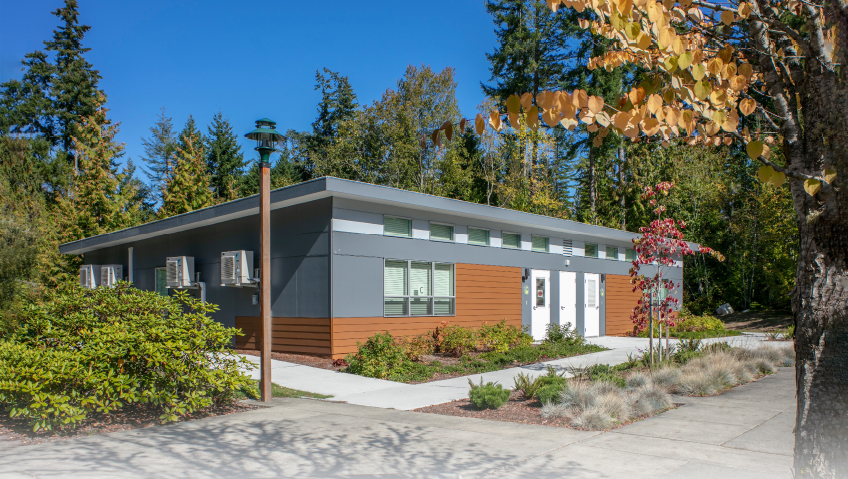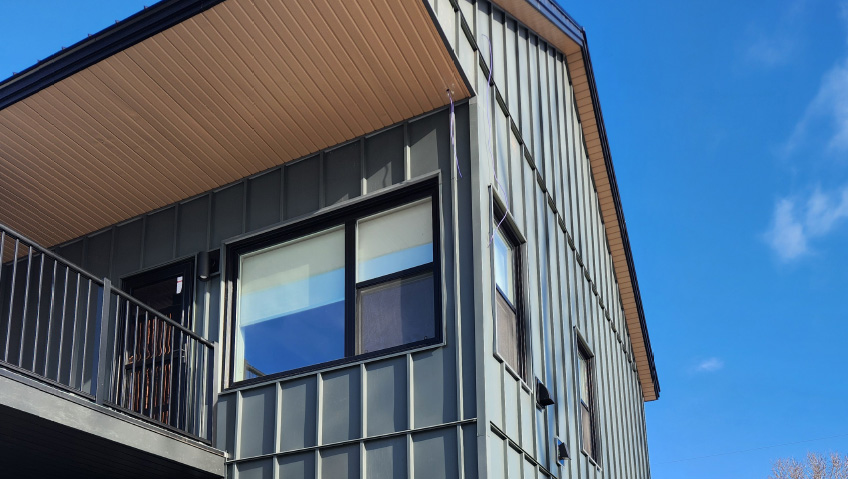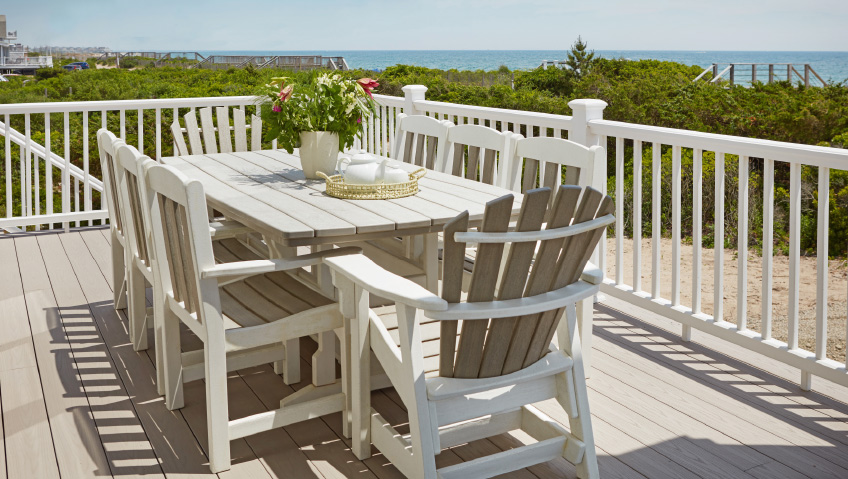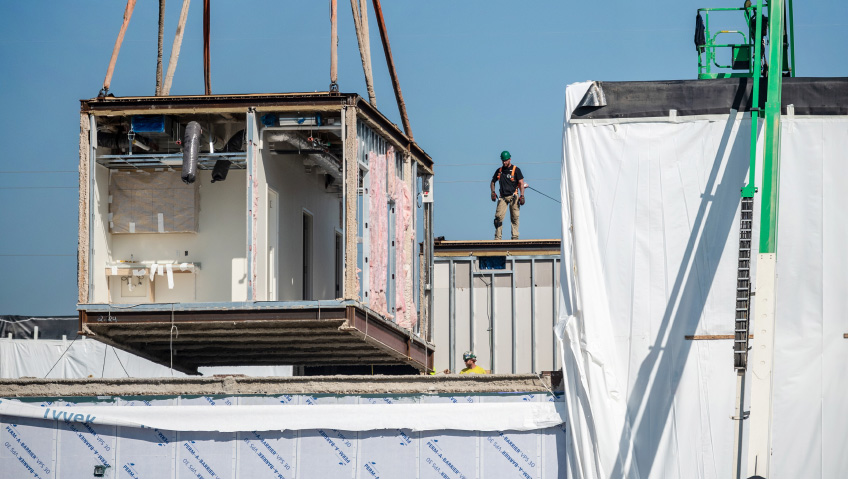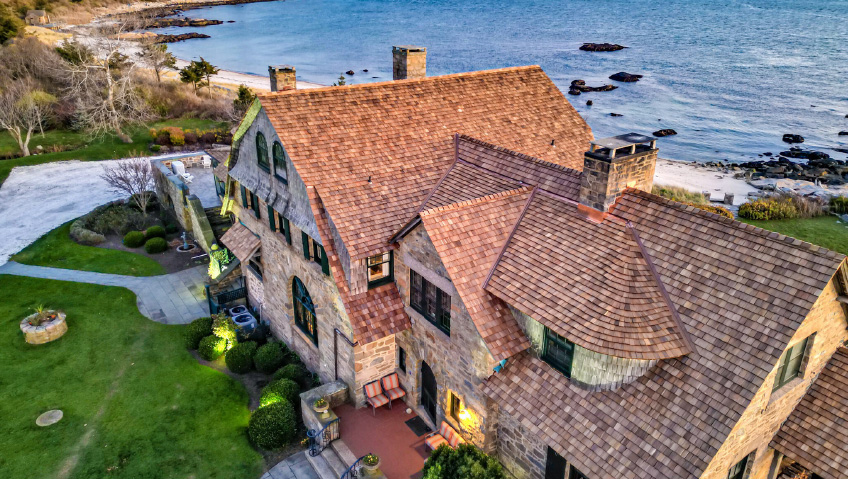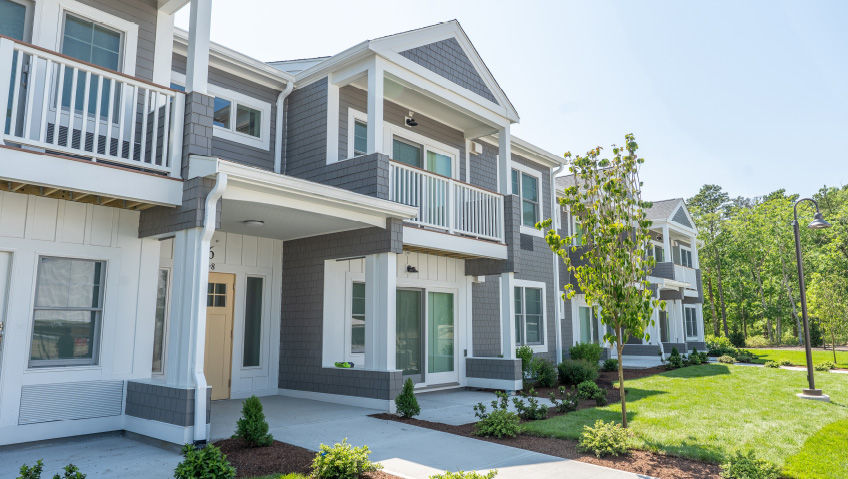Reflecting on the 40-year history of Pacific Mobile Structures, Inc., Chief Executive Officer and President Garth Haakenson is proud of the company’s many accomplishments.
A few years after his father founded Pacific Mobile in 1983, the young Garth began working for Pacific Mobile on construction crews throughout the late 1980s and early 1990s. Learning all aspects of the business from construction to administration, Garth and his sister purchased the company in 2011, and it remains family-owned to this day.
The roots of Pacific Mobile go back to the 1970s when Garth’s father and a business partner started Westwood Industries. Seizing an opportunity to make modular buildings, the company enjoyed plenty of early success. Their output included relocatable classrooms for education clients in the Pacific Northwest, and others in energy, such as nuclear and housing for oilfield workers in Alaska’s Prudhoe Bay.
When the economy started lagging in the early 1980s, the partners separated. Garth’s father launched the mobile-office rental fleet side of things in 1983 with Pacific Mobile, and his former partner shifted to the manufacturing side.
“My father was doing the same thing, but working with the end user,” says Haakenson. “Typically, the business model is that you have a manufacturer, a contractor in between, and then the end user. [With us,] the contractor, Pacific Mobile, does all the design, installation, and so forth, working with the end users. That’s the business model we have now.”
Instead of manufacturing, Pacific Mobile contracts with about half a dozen factories across its territory to manufacture the structures, which are assembled on site and made into the finished products.
“Nowadays, 60 or 70 percent of a project can be completed in-plant, and the remainder of it is a combination of site work—building roofs or doing brick finishes, things that can’t easily be transported, giving it more of an aesthetically pleasing look,” Haakenson explains. “People don’t really know it’s a modular building; it’s a different form of construction, and that’s how we like to look at the custom side of the business.”
From mobile offices and temporary or relocatable buildings, storage containers to modular construction services, Pacific Mobile delivers quality professional products and services every time. With 12 locations across the Northwest, California, and Arizona Regions, the company provides floor plans, furniture, step and ramp systems, and even chairs, desks, filing cabinets, and appliances as requested.
Pacific Mobile can lease out anything from an 8 x 16-foot unit used as a construction site office for a few months to massive spaces of up to 100,000 square feet. One client in particular working on a current large-scale project is Turner Construction. The international construction services company is involved in the $4 billion project to replace San Diego’s International Airport Terminal 1. The phased project is expected to take six years and needs to house engineers on-site for the duration.
“We can mobilize 100,000 square feet of mobile office and put it in a parking lot, and it stays there for the time,” says Haakenson. “We then take it back, remarket it, and repurpose it.”
Since mobile units are cleverly designed in sections measuring about 1,000 square feet, they can easily be made larger or smaller, depending on client needs. If a customer requires 5,000 square feet, for example, five boxes are used.
Once a project is completed, the boxes are reconfigured and delivered to other locations. “You get to choose from different configurations, and that’s what’s great about it when you talk about recycling and repurposing; it doesn’t go to waste. We can reuse it, and it has a long life cycle.
Continuing on its growth trajectory, last December Pacific Mobile acquired Sustainable Modular Management (SMM). Based in Frisco, Texas, SMM is located in the Dallas-Fort Worth metroplex. An established, family-owned business, SMM manages more than 700,000 square feet of leased modular building space, with clients that include the federal government, the energy sector, healthcare, and education.
In a media release, SMM President and CEO Nick Mackie discussed the benefits of the two companies joining forces:
“After running a process which consisted of interviewing multiple potential partners, it quickly became clear that Pacific Mobile was the optimal choice,” said Mackie. The synergies between the two entities “will increase PMSI’s competitive edge by widening its geographical footprint and providing instant access to new end markets.”
While continuing to operate in its present form—including retaining all 45 SMM staff members—the move has afforded the team at SMM access to Pacific Mobile’s back-office support (including human resources, accounting, procurement, information technology, and marketing), access to 10 storage and maintenance facilities across the western states, and other benefits.
“It was a really nice addition, and complemented our business mix as well,” says Haakenson. “We do a lot more privately funded work; SMM does more publicly funded work. Blending the two really does balance our exposure to any downturn that could happen, and diversifies our business in a good way.”
To ensure Pacific Mobile provides all its customers with the highest quality mobile structures, the company reinvests 15 percent of its revenue into building maintenance. The reason, says Haakenson, is simple: “As long as you do that, these buildings have a 25, 30, or even 40-year lifecycle. If you don’t do that, like anything else, they won’t last.”
In the early days of the business, Pacific Mobile didn’t have the financial backing to borrow money and build a rental fleet, so it focused on the construction side. All the profit Pacific made over the years in construction was reinvested into buying a single-wide mobile office rental fleet.
As that fleet grew over time, the company took advantage of sound financial backing with its banking partners. This led to some acquisition opportunities which propelled the company into the leasing market alongside construction, enhancing its growth in the California market. “So there is a nice combination of acquisitions and organic growth that got us to where we are today,” says Haakenson.
At Pacific Mobile, all buildings are maintained to the same standards of quality, which is unusual in the industry. “One of the things we point to is this consistency of quality in our rental fleet; that’s important. And we have a lot of flexibility in the lease programs that we offer: lease to own or outright purchase, and we can finance some deals internally.”
Over the decades, Pacific Mobile has been behind countless successful projects, many in education. One that immediately comes to mind for Haakenson is its award-winning SAGE classrooms (SAGE standing for Smart Academic Green Environment).
“A relocatable building is what it really is,” he says. “Not temporary, just relocatable.” Unlike the dark and poorly maintained school portables of the past, Pacific’s relocatable buildings are designed to be conducive to improved learning environments, and made “with the best in green building practices.”
Back in the day, schools sourced cheap buildings because they believed they were temporary; decades later, these structures are now old and tired. Pacific responded by developing new products incorporating many features from standard portables, which were essentially 28’ x 32’ boxes with one window and eight-foot-high ceilings.
Pacific’s structures have vaulted ceilings, more windows bringing in natural daylight, and HVAC systems, are plumbed, and boast other modern amenities. The classrooms are available in 28’ by 64’ or 28’ by 32’ configurations, and some are even equipped for solar power. More information is available at https://pacificmobile.com/wp-content/uploads/2022/01/SAGE-Sell-Sheet.pdf.
“SAGE is a product we are very proud of,” says Haakenson of the buildings, which also feature steel floor structures and are made of environmentally safe building materials. “It’s a slow process, getting people to think differently about what was historically a temporary need, but it’s really a long-term need that’s relocatable, and you shouldn’t shortchange the quality of the buildings we put students in to learn.”
With a rental fleet of about 3,800,000 square feet, and growing to approximately 240 employees, Pacific Mobile looks forward to the future. As part of the company’s 40th anniversary celebrations, Haakenson is visiting Pacific Mobile’s locations, discussing updates, sharing results, and talking about three- and five-year plans. At the same time, the team is celebrating with company barbecues and cornhole tournaments, “going light on the business talk, enjoying each other, recognizing what we’ve created and what we yet want to accomplish,” says Haakenson.
“We’re still standing here, and we’re going to keep standing,” he continues. “I can think of only about five of us in the U.S. that are still family-owned businesses doing what we do—if there are even five. The landscape is changing as far as who operates and runs these businesses goes, but we find being a family-owned business is an advantage. We have a really long-term approach to how we look at solving problems, serving our customers, and treating our employees; it’s a different game when you start talking private equity interests.”
For now, having experienced significant growth over the past few years, the company will keep reinvesting in itself to ensure quality and continue refining its services and processes for the benefit of customers. “We see a lot of opportunity,” says Haakenson, “and our approach is to continue to grow slowly and methodically over these next few years and find the opportunity where it’s at.”

